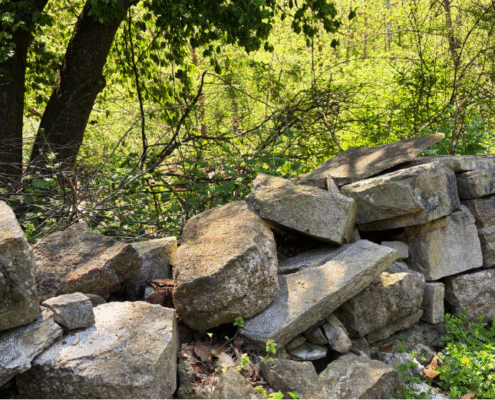Ep.1024: Is the Hell of Christian Tradition Taught in the Bible? (Part II)
Hellfire's pagan influence on post-New Testament Christian beliefs
If you do not have a password, please subscribe to our FREE Premium Content for the Full Edition version of CQ Rewind. The welcome message will contain your password, and a reminder will be sent each week when the CQ Rewind is available online for you to read, print, or download.
CHAPTERS
Theme Scripture: Luke 4:18
"The end result of God’s judgment upon those who do not accept Jesus is eternal fire and torment." Such is the serious warning of many Christians of many centuries before us and of our day as well. Their studied claim is that Jesus was specific,and his words are the words of the Gospel and are therefore not subject to question. While we agree with the unquestionable nature of the words of Jesus, we DO question our Christian friend’s interpretation on this very serious matter. Our questions we respectfully ask about a New Testament hell are these: What if Jesus’ teachings about God’s judgment did NOT point to a burning hell at all? What if that doctrine was borrowed from ancient heathen teaching (as we discussed in Part I of this series) and illegitimately planted into what became known as the Gospel – centuries AFTER Jesus spoke? What if careful scriptural reasoning coupled with post New Testament history could PROVE this?
What would YOU do if you were me? What if you firmly believe that you had been introduced to well established, documented and centuries-old historical insight into a really serious biblical doctrine? What if you believe that this insight shed powerful light on the true teaching of Scripture by establishing its meaning and context within the ancient times it was written? What if these provable scriptural and historical facts point to a conclusion that much of Christianity flatly rejects? You would want people to know about it, wouldn’t you? You’d speak up wouldn’t you? Welcome to my world and the raging debate about the meaning of hell and hellfire in the Bible!
Here is the thing - I am no Bible scholar, I cannot read let alone understand Hebrew or Greek. I am not an ancient civilizations historian either. But I love the Bible – I love God with all of my heart and I have tried every day for over 40 years to walk in Jesus footsteps. The insight that I follow is clearly not my own and I absolutely take no credit for it. I am merely a Christian who has been given weekly opportunities to talk scripture with people all over the world. So I do. Recently we have done Episode #1021 Part I of a 3-part series “Is the Hell of Christian Tradition Taught in the Bible?” In these podcasts we lay out the Scriptures, the history, the languages and the conclusions we firmly believe disprove a Hell of eternal flames and torment in scripture.
How can that possibly be? What about the Scriptures that cite "everlasting flames"? What about the Scriptures describing a New Testament hell with "worms that don’t die" or the "smoke of torment rising up forever"? These are great, valid and deeply important questions that deserve a thorough, historical and linguistically-sound response, which is why I won’t respond here. A short quip would not do justice to such powerful questions. Instead I ask you to listen, especially to this Part II of our series we broadcast on June 4, 2018. If you do listen and you disagree, then kindly respond back with the specifics of what the disagreement is based on and most importantly why. Then we can talk Christian to Christian and reason through our beliefs. Such an approach can only make us all stronger in faith! Also see Episode #1027 Part III.






















